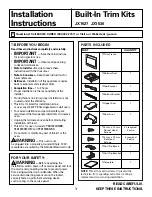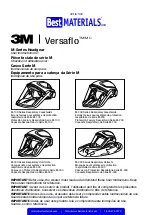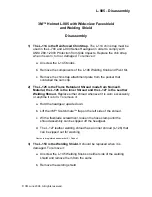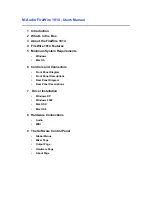
40
Dual Suspension
Dual Suspension bikes (DS) are equipped with a front fork as
well as a rear suspension generally located below the seat.
The piston works in conjunction with a spring to allow the bike
to rotate on a pivot point. Ensure all attaching hardware is
secured and there is no lateral movement of the rear triangle.
The amount of Rear Suspension travel can be adjusted by
turning the adjusting plate. Clockwise will increase spring
tension and decrease travel, while turning counter-clockwise
will decrease spring tension and increase travel. There are
many different types of suspension systems-too many to deal
with individually in this manual.
There must be enough tension on the spring to hold
the spring plate in place. Failure to do this may cause
the mechanism to fail. Failure to maintain, check and
properly adjust the suspension system may result in
suspension malfunction, which can cause you to lose
control and fall. Changing suspension adjustment
can change the handling and braking characteristics
of you bicycle. Never change suspension adjustment
unless you are thoroughly familiar with the suspen-
sion system, manufacturer’s instructions and recom-
mendations, and always check for changes in the
performance of your bicycle by taking a careful test
ride in a hazard free area. If your bike has suspen-
sion equipment, the increased speed you may develop
also increases your risk. When braking, the front of a
suspended bike dips. You could lose control and fall
if your skill is not up to handling this system. Get to
know how to handle your suspension system safely
before trying any downhill or very fast biking.
Anchor bolt
Spring plate
Spring
Piston
Adjusting plate
















































